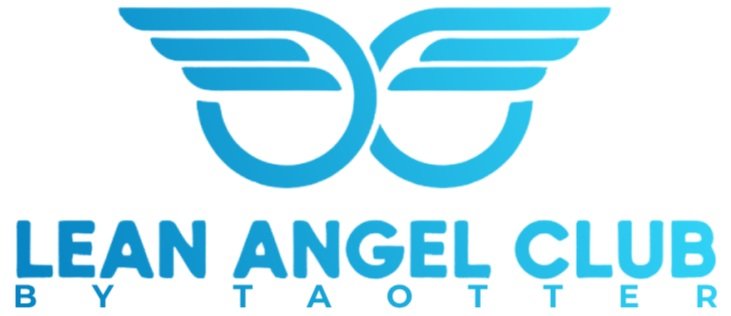RELEVANCE: BUILD, COACH, NETWORK, AND INVEST IN START-UPS
Angels have a lot to offer beyond cash. Some are technically versed with a great network to help operationally. Others are amazing start-up coaches. It all adds up to an amazing quartet!
I did not one day magically wake up with an epiphany to become an Angel investor.
Over the last 13 years, my life’s work has revolved (and evolved) around startups. I worked in a startup incubator–heading programs, managing partners’ funds, and coaching and training some 950+ startups and coaches. Above all, I am an entrepreneur at heart. I co-founded Taotter - a marketplace to source vetted and trained-for-startups remote talent.
With the little that my then job permits me to support these budding entities that could better society, the environment, and people’s lives at scale, I stepped up my involvement with startups and journeyed into angel investing five years ago.
All these led to the intent of this blog: Lean thinking and Angel investing.
You will hear me express views that sometimes hold certain biases. While I sometimes wish to defer them, my thinking can zap from startup trainer to coach to founder to investor. The dynamics of an angel holding any or all technical, investment, and coaching capabilities intersect and intertwine while working with a startup. Things are not straightforward. If they were, we would be talking about the science of building and investing in startups (which doesn’t exist in its absolute sense). As I document and share, hoping to inspire and learn from others, please excuse my brain-vomiting moments.
I was well aware that investing at an early stage would come with its risks (impacting my finances, for one), but a venture’s potential and the itch to enable a wider impact outweighed the cons.
It all began with putting my efforts into startups that could grow exponentially. The first book I read and would recommend is “Angel” by Jason Calacanis. I picked it up after meeting him on a demo day we organized at the incubator some seven years ago. Since then, I have continuously been self-educating, and analyzing versions of my thesis as an angel.
When I finally decided to put in my first ticket, things changed. Calacanis’ point hit me:
“Your job as an angel investor,” he wrote, “is to block out the haters, doubters, and small thinkers, because if you think small you’ll be small. I’d rather see my founders fail at a big goal than succeed at a small one.”
My following investments got better enabled with a mix of coaching, technical support, and networking capabilities to build a portfolio. This baselined the beginnings of my identity as an angel and I am putting my writings out for those setting out on a similar journey.
The formats of engagements as an angel can be summed up as either a passive or active investor. A passive investor deploys capital with no engagement with the startup besides reading the quarterly reports while waiting for a liquidity event. An active investor might put in the time to coach and advise, engage operationally with the startup to build (strategy, product, marketing, financial model, etc.), activate his or her network (to access customers, partners, and investors), and fundamentally fund the venture.
I tend to think visually so I drafted a model of engagement for angels to explore and position themselves. Each area represents a mode that comes with its predispositions and expectations that will be explored later.
The highest type of engagement occurs in the middle of the graph where the angel provides coaching, technical support, access to their network, and funding. I find this to be venture building (VB) at its best as the angel puts skin in the game to co-realize the startup’s vision.
The mainstream angel investment model is putting in around 2 to 3 tickets a year. Typically, an angel reviews about 100~ pitches a year, shows interest in 20-30 for follow-up meetings, and runs due diligence with 5-10 startups to finally get down to those 2-3 deals.
There are various paths to building and activating your angel investment thesis. I started with none, invested in the founders, and realized it along the way. In the process, I have built some tools for startup business model derisking and angel portfolio management (all of which I’m continuously iterating).
As you journey into it, you will discover your why, where you want to be, and the means to grow your capabilities.
